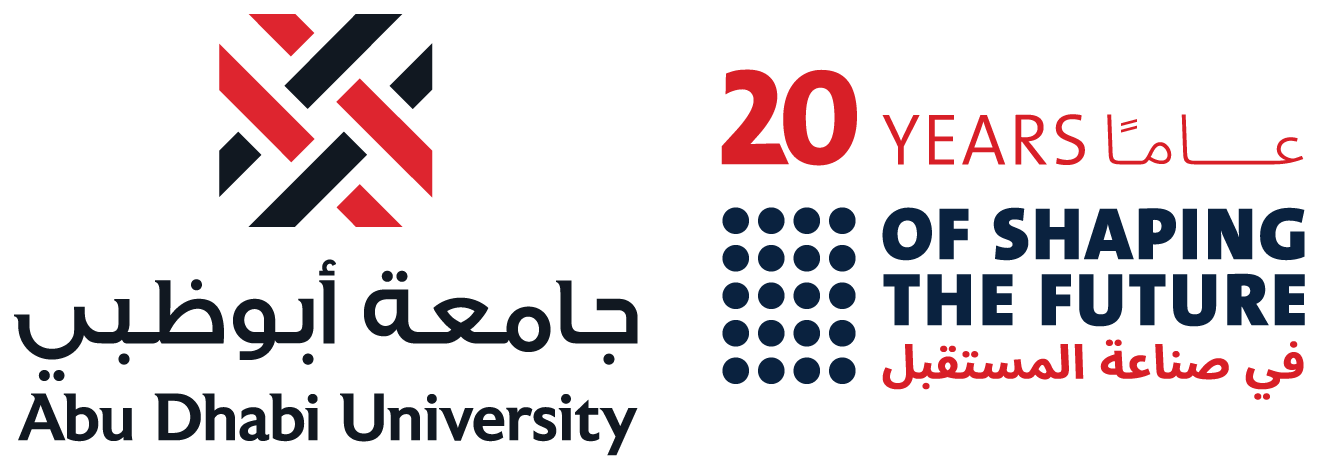ADU Student Research on Resilient Cities During COVID-19 Profiled at Leading International Conference
Architecture students from ADU's College of Engineering presented a research paper titled ‘Resilient cities and COVID-19 – an Abu Dhabi case study,’ at an international conference focused on ‘Lockdown Urbanism,’ organized by the International Community of Spatial Planning and Sustainable Development.
Architecture students from ADU's College of Engineering presented a research paper titled ‘Resilient cities and COVID-19 – an Abu Dhabi case study,’ at an international conference focused on ‘Lockdown Urbanism,’ organized by the International Community of Spatial Planning and Sustainable Development. The students - Aya Al Khatib, Maya Wacily, Heba Hejji, Zeina Adel Hammam, and Zakia Al Amry - developed their research under Dr. Rim Meziani’s supervision, using resources available at the University.
The research paper was presented to a panel of judges during the international conference held last month and earned a lot of interest. The students were invited to publish their research in the International Review for Spatial Planning and Sustainable Development (IRSPSD), a top-ranked Scopus indexed journal where leading academics architecture publish their research.
In the research, the students explore possible challenges that countries around the world might face during a pandemic, including risk management, infrastructure, and resources, and present a case study on the UAE - the Emirate of Abu Dhabi in particular - showcasing the resilient approach that Abu Dhabi took to combat COVID-19.
The paper, which takes an architectural and urban perspective, aims to study the capacity of large buildings and how they can be transformed into wide spaces with high medical standards and hygiene levels to accommodate medical emergencies during pandemics.
Secondly, it proposes a master plan in a sample neighborhood in Abu Dhabi that shows the distribution and location of large spaces and potential buildings, which have been selected based on accessibility, proximity, capacity, the radius of services, the flexibility of plans/layout, and technicality. The research states that it is possible to transform and convert these buildings for medical use in future emergencies and crises. By enacting these measures, Abu Dhabi would be more spatially prepared for such risks and be able to act rapidly and efficiently.
Commenting on this achievement, Prof. Thomas Hochstettler, Provost of Abu Dhabi University, said, “This success is a testament to our students’ ingenuity and hard work that is contributing to supporting Abu Dhabi University’s vision to be a frontrunner in producing distinguished research. Student research is learning at its best: it is creative and challenging and enables students to experience first-hand the process of scholarly exploration that characterizes an academic mindset. For this reason, we are committed to providing our undergraduates with the highest standards of research and innovation and offering them an open platform to think, observe, and connect.”
Dr. Hamdi Sheibani, Dean of the College of Engineering at ADU, said, “I am filled with indescribable pride on behalf of our talented students and their accomplishments. They have achieved great success at the international ‘Lockdown Urbanism’ conference and will be featured in one of the world's most reputable academic journals. We are dedicated to providing a vibrant learning culture for our students and equipping them with advanced skills and expertise to give them a competitive edge and unlock their potential. By enabling them to share their input and insights, we are giving them the opportunity to tackle real-life challenges, especially the COVID-19 pandemic that has impacted the whole world in an unprecedented way.”
Dr. Rim Meziani, Associate Professor of Architecture at ADU, who supervised the research, added, “I am immensely proud of our students for successfully developing this research and impressing the judges with their bright ideas. This is a prodigious achievement. We thank ADU for this opportunity, and I am delighted to have supervised and worked with these young and talented minds. It is a great honor for me to be part of a distinguished academic institution such as ADU that is always keen to support quality in research and education and retain hard-working and high achieving students.”
